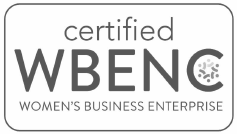The fundamentals of publicity are always the same: Know your media, know your target audience, and ensure that your content is compelling and relevant.
Perhaps no industry has been changed more dramatically by the internet than the news media and, by extension, public relations. The news delivery process, once disseminated through defined channels, has evolved into a frenzied stream of information that flows through websites, blogs (web logs), online conferences, chat rooms, and message boards.
Reaching the web-surfing consumer has become a priority for Fortune 500 firms and small businesses alike. The best way to make your business stand out on the web is to engage in what is known as Search Engine Optimization (SEO), which has become an essential component of the marketing mix and helps your client material or press release appear at the top of internet search listings pertinent to your industry. Approximately 98% of journalists go online daily to generate story ideas and access information, according to a recent survey by Middleberg/Ross. A new study from JupiterResearch reveals that the internet is becoming the most important medium for a large segment of the American public; online users spend an average of 14 hours a week using the internet.
“To reach your target audience on the web, a blend of search engine marketing techniques with traditional PR tools offers an unprecedented opportunity to build a company’s image and maximize visibility,” said Bill Parkhurst, President of Parkhurst Communications in New York, NY, and author of How to Get Publicity (HarperBusiness).
Optimizing websites and press releases generates web traffic, leads, and invaluable publicity that can translate into increased sales. PR professionals can tap the same techniques used by search engine marketers to influence online results and ensure that the right message is being delivered to the right audience.
Achieving consistently high rankings in search engine results requires persistence. Placement of the final results are based on criteria controlled by the respective search engine. According to Joanna Cali, President of Calico Systems Inc., North Salem, NY, a web-design firm that specializes in SEO, “The benefits of optimization aren’t realized overnight. Although we usually see results in Yahoo relatively quickly, it can take many additional months for Google to acknowledge the work. But patience and persistence can pay off big time, with natural search engine rankings accounting for over 90% of sales or lead generation on some sites over time.”
SEO involves two components—“on site” (changes to the website itself) and “off site” (i.e., online news articles about the Company). Writing “searchable” websites is an established practice; the new trend is writing effective press releases that will make a big splash on the internet.
Here are some basic tips to make a press release more searchable and improve your rankings on search engine results:
- Optimize your company website. Seek a professional search engine optimizer who will help your website appear at the top of the list of websites during a search around your targeted terms.
- Conduct keyword research to identify relevant search terms or phrases. Use them in the headline and in several places throughout your release. Substitute these terms for the words “it,” “its” or “their.”
- Provide a link from a news release to a relevant page on the Company website. Embed a complete link in your release (http://www.yourdomainname.com instead of yourdomainname.com).
- Send the press release through PR Web’s (www.prweb.com) database of more than 65,000 media outlets.
- Distribute the release through wire services such as BusinessWire or PR Newswire. This is costly but often yields pages of Google results.
- Send the press release directly to Yahoo News, Google News, AOL News, and other internet media outlets.
- Focus on the search engines that generate the most “referral” traffic. To get content in, email the appropriate editor of your topic.
- Post items to newsgroups. Treat this process like a press release and put keywords in your subject line and in the message you post. Word of caution: Do not randomly post items to newsgroups, as this is considered “spamming” and will generate negative responses. Be careful to only post items to newsgroups that will genuinely benefit from your information.
- Take advantage of paid search opportunities, including paid inclusion and pay-per-click advertising, particularly with breaking news or a timely topic.
- Monitor optimization’s effects and measure your promotion’s results, including the number of leads from Google, Yahoo and other major search engines and the number of qualified prospects who join an email list.
It is important to remember that SEO is not a magic bullet and that all internet strategies should be reinforced by tried and true PR practices. The fundamentals of publicity are always the same: Know your media, know your target audience, and ensure that your content is compelling and relevant.
There is no substitute for personal contact with the media. After all, PR is about building and maintaining relationships.
Stacey Cohen is President of Co-Communications, Inc., a full-service Marketing/Public Relations firm in Mt. Kisco, NY. She can be reached at 914.666.0066 or via e-mail, [email protected].

